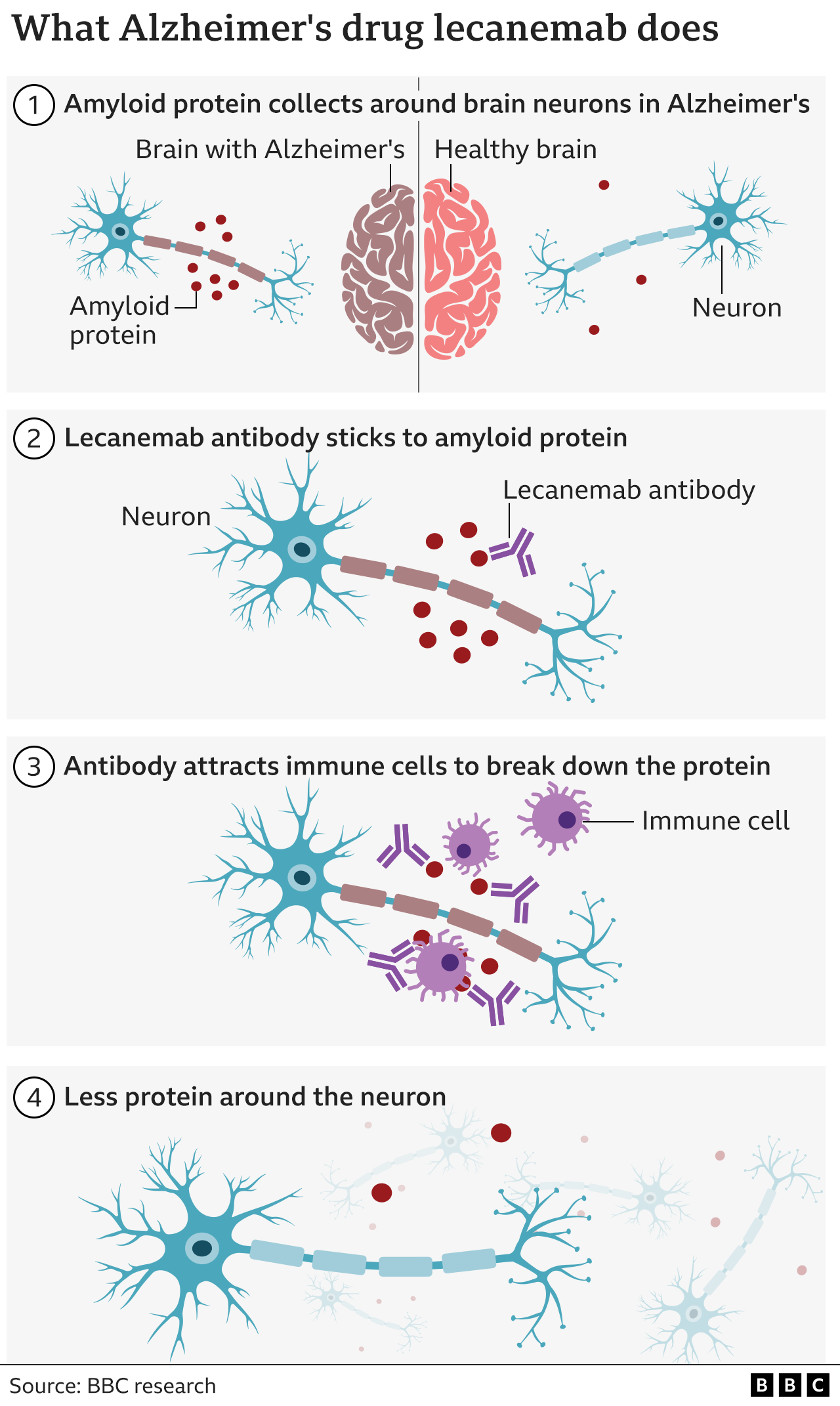Fiona Phillips: How common is early Alzheimer’s?
We answer the questions you’re asking about Alzheimer’s disease, which causes dementia. …

Published
8 hours ago
 Image source, Getty Images
Image source, Getty ImagesShe was just 61 years old when she was diagnosed with this form of dementia.
Is dementia the same as Alzheimer’s?
No – dementia is a symptom found in many diseases of the brain.
Memory loss is the most common feature of dementia, particularly the struggle to remember recent events.
Other symptoms can include changes to behaviour, mood and personality, becoming lost in familiar places or being unable to find the right word in a conversation.
It can reach the point where people don’t know they need to eat or drink.
Alzheimer’s disease is by far the most common of the diseases that cause dementia.
Others include vascular dementia, dementia with Lewy bodies, fronto-temporal dementia, Parkinson’s disease dementia, amyotrophic lateral sclerosis and the newly discovered Late.
What are the early signs of Alzheimer’s?
The first signs of Alzheimer’s disease tend to be lapses in memory.
This could include forgetting recent conversations, losing things, forgetting names or asking the same question over and over again.
There can also be changes in mood such as greater levels of anxiety or confusion.
Do many younger people get Alzheimer’s?
Alzheimer’s is mostly a disease of old age – one in six people over the age of 80 develop it.
Early onset (also known as young onset) Alzheimer’s is relatively rare. Still, 5% of all Alzheimer’s cases are in people under the age of 65.
A much smaller number of people are affected in their 30s and 40s, usually because of a faulty gene passed down the generations.
The only known risk factor for getting Alzheimer’s at a young age is if close relatives also had early onset disease, and there is no known way of preventing it.
The early onset form of the disease follows the same inexorable course as it does in older age – it affects memory, thinking skills and behaviour.
What is brain fog?
Fiona Phillips mentioned she’d lived with months of brain fog before her diagnosis.
Brain fog does not have a medical definition, but it is often used by people to describe a fuzzy head, poor concentration and struggling to think clearly or quickly.
Can I stop myself getting dementia?
There is no proven way of stopping yourself from getting dementia, but you can tip the odds in your favour.
- treating hearing loss in mid-life
- spending longer in education
- stopping smoking
- seeking early treatment for depression
- being physically active
- avoiding becoming socially isolated
- avoiding high blood pressure
- not becoming obese
- not developing type 2 diabetes
It is not completely clear why doing these things can help protect the brain.
Do these lifestyle factors actually stop the process of dementia in the brain? Or do they prepare the brain for dementia by increasing the connections and flexibility of the brain so that, as neurones start to die, the brain can compensate for longer, and symptoms don’t emerge?
You can do everything recommended to try to prevent dementia and still develop it, or do nothing and be untouched by it.
Is Alzheimer’s hereditary?
Yes, it can be – but that’s not the whole story.
Fiona Phillips has described how Alzheimer’s “decimated” her family – and having a parent or sibling with Alzheimer’s increases your risk of developing the disease.
But having relatives with the disease does not mean you are fated to develop it, and being in a family untouched by Alzheimer’s does not mean you will be spared it either.
What drug is Fiona Phillips taking?
She is taking part in trials of a drug called miridesap at University College Hospital in London. This involves injections in her stomach every day for a maximum of 12 months.
The aim of the trial is to find out whether the drug, which removes a protein called SAP (serum amyloid P component) from the brain, can stop amyloid plaques from damaging brain cells.
The researchers think this could be part of the process of the development of Alzheimer’s disease.
Patients with mild Alzheimer’s disease have been recruited to the DESPIAD trial, which also includes tests on brain function.
Has there been any good news on other drugs?
Yes. For the first time, drugs have been proven to slow the pace of Alzheimer’s disease in clinical trials.
Donanemab and lecanemab target amyloid in the brain during the early stages of the disease.
Amyloid builds up in the spaces between brain cells, forming plaques that are one of the characteristics of the disease.
However, the benefit of these drugs does not appear to be huge and they do not stop or reverse the disease, but they do show it is possible to slow it down.
These drugs have not yet made the leap from scientific studies to routine hospital use.

Related Topics
Related Internet Links
The BBC is not responsible for the content of external sites.

